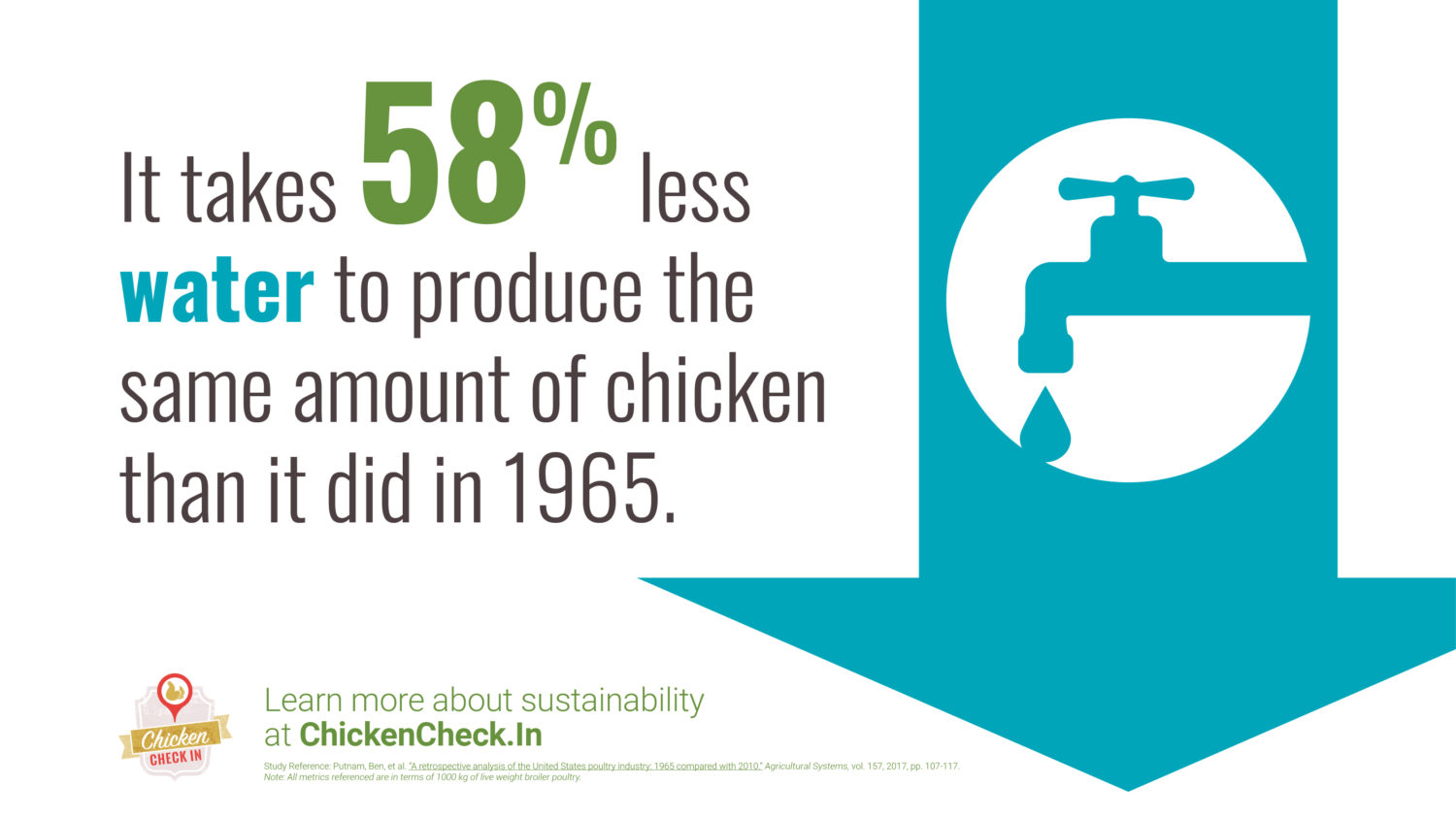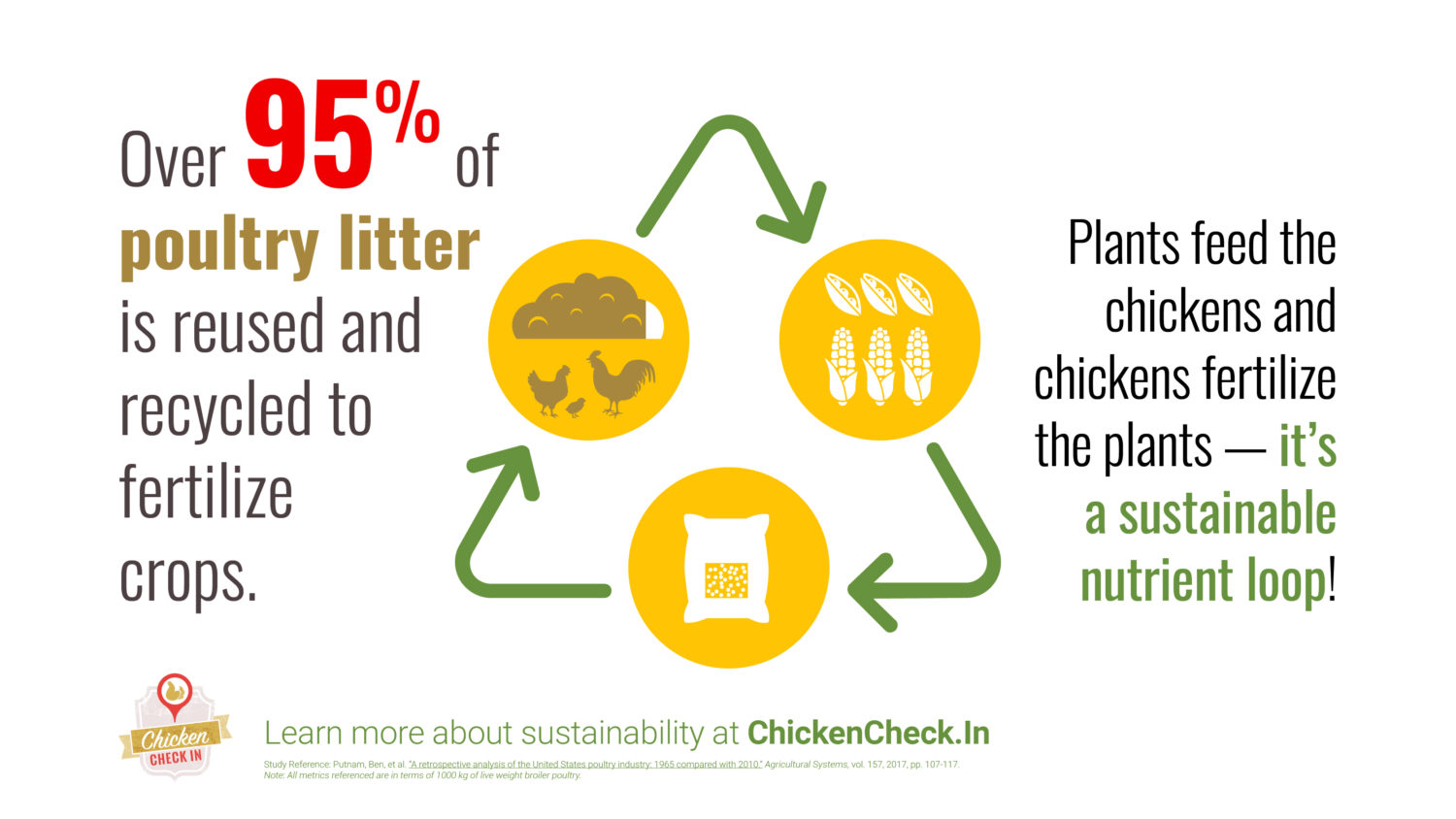Sustainability in agriculture continues to be a hot topic among U.S. shoppers. More and more shoppers want to know, “Is this product sustainable? What is its environmental impact?”
Based on 2019 research from the National Chicken Council, the environmental impact of chicken is one of the top factors impacting purchase decisions. However, misconceptions surrounding chicken production are widespread, with half of respondents of the same survey saying they aren’t even moderately knowledgeable about chicken production’s impact on the environment.
To help you make the most informed decisions about your food, we want to give you the inside scoop on how chicken is produced with the environment in mind.
Every step of the chicken supply chain, from farm to table, has an impact on our environment. That’s why the industry has committed itself to reducing its footprint in meaningful ways while also maintaining and advocating for the humane treatment of chickens.
This commitment to being sustainable stewards has led to the environmental impact of raising a flock to decrease dramatically over the last five decades. Today, it takes 75% fewer resources to produce the same amount of chicken than it did in 1965. That’s 58% less water and 72% less farmland.
But don’t just take our word for it…


The progress towards becoming better environmental stewards has been made possible in large part by farmers who are constantly looking for new ways to innovate. In 2019, we had the opportunity to speak with four farmers to learn what sustainability means to them and see how they are implementing new technology and sustainable farming practices. Take a look:
It’s easy to tell from the video that today’s modern chicken farm features efficient, technology-friendly operations. Sustainable farming practices, like recycling chicken litter as fertilizer and implementing nutrient management plans for soil, create a cyclical method to use life-giving resources while minimizing waste and GHGs.
If you are looking for more info on how your decision to choose chicken at the grocery store impacts the environment, head over to our sustainability FAQ.
The next time you are at the store, we hope you’ll feel more informed about your decision to choose chicken. If you want to get to know even more about the chicken you buy, head to this helpful infographic on food labels.

